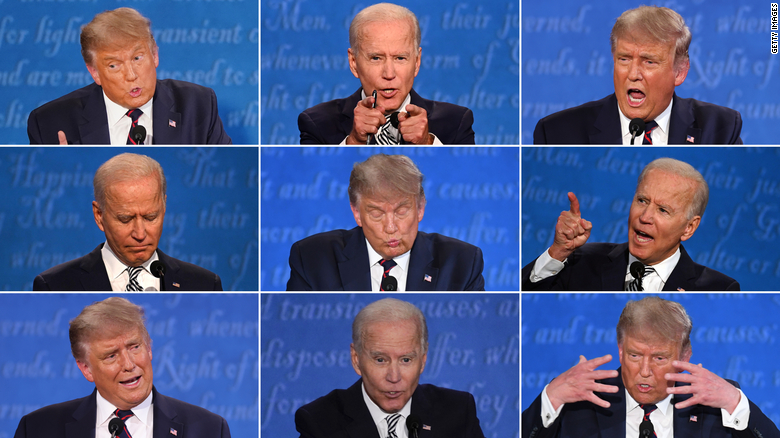Should There Be More Debates?
The first debate on September 29th left some voters shaking their heads and other voters laughing.
October 6, 2020
Due to President Trump’s recent COVID-19 diagnosis and hospitalization, there will need to be some shift in practices to ensure the safety and health of both candidates and the audience on October 13th, the scheduled day for the second presidential debate.
The first presidential debate for the 2020 election was, in basic terms, a poor performance between President Donald Trump and former Vice President Joe Biden, this year’s two presidential candidates. In the span of ninety minutes, Americans and others around the globe watched as the debate instantly fell into an argument, one stuffed with insults and ambiguity from both sides. Despite the president’s recent COVID-19 diagnosis and hospitalization, there will need to be some shift in practice to ensure the safety and health of both candidates and the audience on October 13th.
The result of Tuesday’s fiasco was that many voiced a belief that there’s no need for another debate since it isn’t constitutionally required and is likely to be as chaotic as the first one. It’s a valid opinion given the way the first debate quickly deteriorated, but that exact reason is one of the many reasons that the second and third debates must continue. These candidate “conversations” are about more than just policies this year. Let’s take a look at some of the key reasons why they should continue:
VOTERS This is basically the tip of the iceberg. Americans’ political beliefs have really begun to blur into that murky space in the middle—somewhere between the left and the right. While America is very divided right now in many ways, the truth is people have complex opinions that align with more than just one party.
Presidential debates educate the voters on the candidates’ policies and goals on a more personal level than just reading them off a website. These debates are intended to help those who are undecided choose a candidate. This also gives each candidate the opportunity to appeal to a broader group of voters who may reside in the middle. Having productive debates provides hope for the chance of compromise in the government. The keyword though is hope.
FUTURE The future of the nation is at stake here. Additionally, the future of the world—even the human race—is at stake when one looks at each candidate’s position on climate change.
In any conversation, people use dialogue, idiosyncrasies, and body language that is reflective of their personality and attitudes. The presidential debates are no different. A debate is, essentially, a conversation and the voters observe all of it, listening and watching to see what kind of person the candidates are. Their behavior on the debate stage can help predict the kind of president they will be. Their identity influences the identity of the United States for the next four years and, in turn, influences the rest of the world as well.
PROOF Whoever becomes our next president will show the world that America does still value the people over all else.
This is an optimistic view, yes, but it involves the idea that the nation needs to know that these next four years are going to move the nation forward in a positive direction. Our nation seems to be teetering on the edge of instability as it deals with issues that were always here such as systematic racism and some quite recent with the rise of the COVID-19 pandemic.
One person cannot change everything, but the presidency holds tremendous power. This power can be used to advocate for change and set an example for Congress to follow or it can simply work to push the office’s own agenda. Voters want their president—our leader—to use their voice to accomplish not just what Americans want, but what all Americans need.
This is a perilous time and our nation seems to be at an intersection of history. There is no option to remain static. There is only an option for moving forward. The next two debates will provide us with an answer to the all-important question: what kind of direction will that be?













































